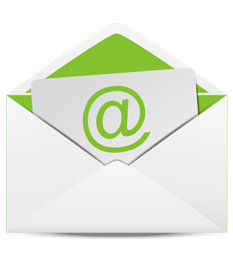ADVERTISEMENT
The digital marketing industry is comprised of individuals conducting any type of work online, whether it’s social media or email marketing. In many cases, multiple areas overlap.
When I began my career in the industry, I trained as a generalist SEO so I had to handle technical issues, PPC, link building, and content creation. Social media wasn’t the behemoth that it is today.
Today, I specialize in one area. Many of the SEO professionals I know also operate in a narrow slice of the industry.
I consider myself lucky to have had such a broad background. I think it gave me a better idea of how it all fits together.
I also learned how important it is to seek out more about things that you aren’t currently doing. It can only help you, and probably advance your career.
Soft Skills
Many people come into marketing with the soft skills that they need to do a great job.
Here are 10 soft skills I’ve found to be the most important for digital marketers.
1. Curiosity
I love it when we get an employee who wants to learn more.
There are so many aspects of digital marketing, so many little niche areas, and craving more knowledge about how it all fits together truly makes you better at whatever your role is.
2. Tenacity
If you give up easily, digital marketing is probably not the field for you.
You may work to rank a site and an update crushes you. You may pitch ideas that get rejected. You may be called in to help figure out why a site isn’t doing well.
Every day there’s something new, and that’s what keeps it all interesting.
3. Willingness to Listen & Learn
I have been wrong so many times it’s crazy. My employees know to argue their points with me if they think I’m wrong, and I’ve learned to really trust what they say.
I’ve had clients give me instructions that I don’t think will work out but I try them, and I’ve been surprised quite often. Thinking you know everything means you don’t have the opportunity to get better.


4. Adaptability
With my team, assignments can vary from month to month, depending upon our client roster.
They might be working on a finance client one month then they’ll need to switch up to a travel client. They may need to pitch in and help someone else out on a client they’ve never worked on.
When I first started out I got thrown into technical SEO, content writing, and PPC all at the same time. There’s always a chance that you’ll need to do something else or extra so you might as well be prepared for it.
5. Ability to Multitask
There are always a ton of things going on at once in digital marketing.
You want to read the latest articles, see the latest relevant tweets, do your job, figure out how to do something in a different way that saves time, do reports, etc.
If you can’t multitask well you will quickly fall behind.


6. Empathy
Being able to see things from someone else’s point of view is essential to marketing of any kind. It’s important to understand why someone thinks a certain way.
Empathy is so important that I wrote an entire article about it.
7. Getting Along with Others
I have worked with many difficult people who had trouble getting along with anyone.
Here’s the hard truth: no one wants to work with someone who’s impossible to be around.
In the digital marketing world, there’s someone who can replace you in your role. All it takes is a bit of training.
If you’re a programmer coding in a cube then maybe you can get away with it. But if you’re client-facing, or you do a lot of collaboration with other teams, it’s hard to get people to listen to you if you’re hard to deal with.
8. Strong Work Ethic
Obviously, you need this in most careers. But if you’re doing something like link building, you will never do well unless you want to work hard. It’s frustrating and tedious work at times.
When marketing fails, it can be extremely difficult to start over. You will encounter lots of roadblocks in some form or another so it’s critical to keep trying and not give up.
9. Honesty
One of my pet peeves is when someone can’t admit to a mistake. You’ll always be found out.
We had a couple of employees who would leave work on the clock and think they wouldn’t be caught, for example. We had someone clock in from another state and pretend that I just hadn’t seen them in the office.
People say completely crazy things. With so many people available to replace you, not being honest is ridiculous.


10. Being Able to Say ‘I Don’t Know’
I don’t know why this is so difficult, but it seems to be.
I once worked for someone who told me to never admit to not knowing something.
That is ridiculous.
You don’t learn unless you admit that you don’t know everything. If I don’t know something I want to dig in and figure it out. I don’t find it embarrassing to not know everything.
I’ve never thought less of anyone who admitted to not knowing something. With so much information thrown at us constantly, it’s impossible to keep up.
Hard Skills
Hard skills are ones that can be taught.
Here are 10 hard skills that are the most achievable for digital marketers – and the ones that can help you forge a broader knowledge of the industry.
11. How to Search Well
People constantly ask questions that they could easily Google. It can waste a lot of time.
You need to be able to dig for information and get better with your search queries so you aren’t wading through tons of irrelevant information.
We’ve had employees who started to work on a new client and would email to ask me to explain what a certain product was used for, for example.
I’d then spend my own time Googling it and figuring it out, then emailing back. I’d much rather do my own research than ask someone else to do it for me.
12. Using Excel
At the least you should be able to perform basic functions in Excel, but depending upon your job, you would be wise to learn how to efficiently deal with large sets of data.
From keyword data to backlinks, it’s difficult to get the info you want without using advanced functions.


13. Conducting Research & Gathering Data
You will most likely need to pull data from various sources at some point. You may have to audit a website.
There are so many tools out there and so many sources for information. It’s critical that you can figure out where to look and how to get what you need.
If you’re creating content you’ll also need to be able to find and verify information.
14. Using Google Analytics
You can get so much information from Google Analytics that it would be crazy not to try and master it.
If Google is giving you information about your site you absolutely need to use it. From looking at traffic to tracking conversions, it’s a must-have tool, and it’s free.


15. Using at Least One Major SEO Tool
Outside of Google Analytics, it’s good to know how to use at least one digital marketing tool that can give you a different dataset.
I use a few because each has its own strong points. It’s amazing to see how much information you can get from these tools and their reports.
16. Analyzing the Effectiveness of Your Efforts
Some people measure progress by increased traffic. Some like conversions.
Whatever your KPIs are, you need to know how to track them reliably.
17. Communication
Whether you communicate better through writing or speaking, good communication skills are absolutely critical.
My employees are remote workers and none of my clients are anywhere near me, so I spend a lot of time emailing back and forth with everyone.
Good communication skills seem to come naturally to some people. If you aren’t one of them, it’s definitely something you can work on improving.


18. Figuring out What’s Going on & What’s Gone Wrong
If traffic suddenly drops or bounce rate drastically increases, it’s important that you know how to start tracking down potential causes.
Not everything is cause for alarm. There may be logical explanations for what you’re seeing.
You simply need to know where to look and how to grab enough information that it’s easy to get an idea of what’s happening and then start to fix it.


19. Using a Crawler
Several great crawling tools are available. Familiarize yourself with at least one of them.
Even if you aren’t getting too technical with your work, just being able to get information about redirects or duplicate content can be incredibly helpful.
20. Coding or Understanding Code
Though more advanced programming skills are certainly helpful, I think all SEO professionals should at least know basic HTML.
Coding teaches you how to think logically and improves your problem-solving skills.
Even if you never have a chance to code you will be better equipped to think through problems.
More Resources:
Subscribe to SEJ
Get our daily newsletter from SEJ’s Founder Loren Baker about the latest news in the industry!

http://tracking.feedpress.it/link/13962/11090198

